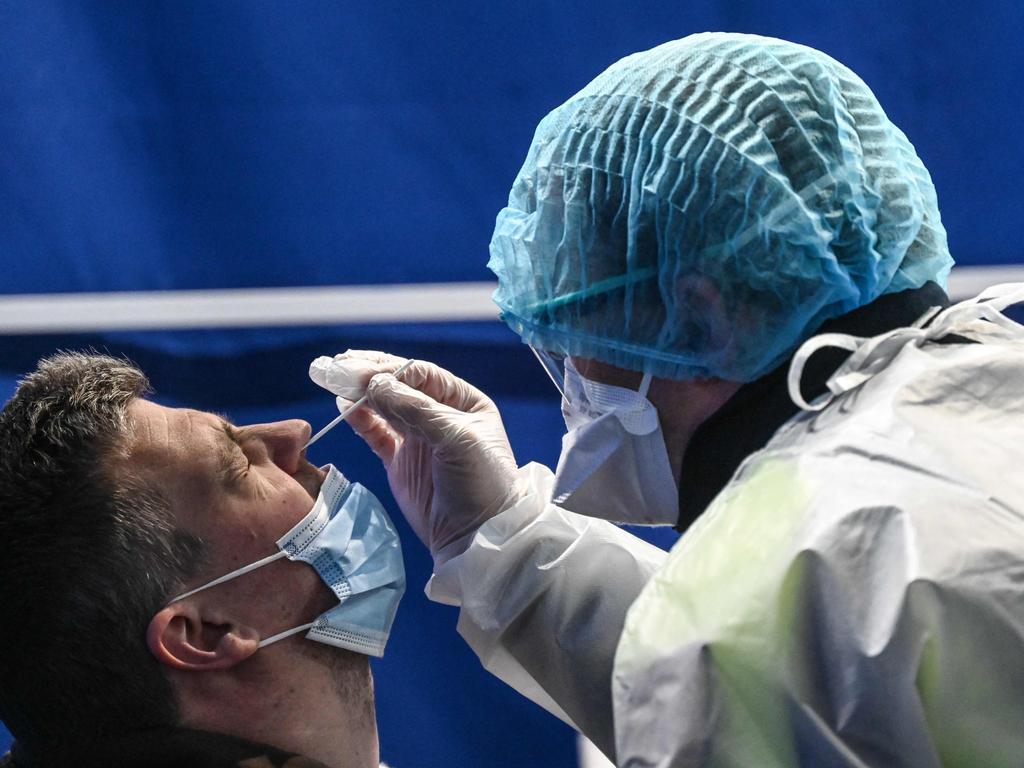Drowned man tests positive for Covid-19 28 times
Doctors examining the corpse of a man who died from drowning and showed no symptoms of coronavirus have made a disturbing discovery.
A Ukrainian man who died from drowning subsequently tested positive for coronavirus twenty-eight times over more than a month.
Doctors from Italy’s D’Annunzio University say the findings shed new light on the persistency of the SARS-CoV-2 virus in dead bodies, although more research is needed to determine the infection risk.
The main route of transmission of the virus is large respiratory droplets, and to date there has been no evidence of infection from a corpse.
“The present case shows the persistence of SARS-CoV-2 RNA up to 41 days after death,” the researchers from the university’s Center for Advanced Studies and Technology wrote in the Journal of Medical Case Reports.
“Data about its persistence are of fundamental importance for pathologists to understand when the handling of the corpse is safe, and further studies are needed to estimate the virus contagiousness.”
The 41-year-old man went missing after swimming in the sea with a friend during rough weather near Chieti on central Italy’s east coast.
His body was found wedged between rocks about 16 hours later and an autopsy was ordered.
Stream the latest news on COVID-19 with Flash. Stream more than 20 global & local news sources. New to Flash? Try 14 days free now>

Despite being described as completely asymptomatic prior to his death, a nasal swab was conducted on the man’s body in line with Italy’s current Covid-19 guidelines.
“Due to pending burial authorisations, the corpse was kept in the Chieti Hospital morgue, respecting the guidelines on management of SARS-CoV-2 deceased,” the authors wrote.
“The waiting period allowed us to follow the evolution of the positivity of the virus by performing multiple nasopharyngeal swabs.”
Over a period of 41 days, during which the body was stored in a cold room at 4C inside a sealed and disinfected waterproof bag, researchers conducted 28 nasopharyngeal swabs for PCR testing.
“All swabs performed during the observational period were reported as positive,” they wrote.
“It was not possible to perform other swabs beyond 41 days due to burial authorisation and also the putrefactive state of the body (batrachian abdomen with abdominal and facial putrefactive spottings).”
The findings add to data about the virus’ behaviour in living subjects and on inanimate surfaces.
Researchers have previously detected SARS-CoV-2 on surfaces for up to five days, while one study found the virus in cruise ship cabins 17 days after passengers disembarked.
And last year, German researchers who took tissue samples from the throats of deceased Covid-19 patients found that the virus could replicate up to 35 hours post-mortem.

“However, there is a lack of data on virus persistency on dead bodies and on the risk of contagion from cadavers,” the authors wrote.
“These data are of fundamental importance as the execution of the autopsies puts various categories of workers (pathologists, technicians, and so on) in contact with a possible source of biological risk, with implications not only from a health point of view but also from a medicolegal one. To date, we could not find any recent publication nor (World Health Organisation) report defining the risk of post-mortem transmission of SARS-CoV-2 or how long body fluids remain infected in the cadaver.”
They noted that while the main route of transmission is inhalation of large respiratory droplets, “transmission via contact with contaminated body excretions, air, and fecal-oral route has also been suggested”.
“When managing SARS-CoV-2-positive cadavers, the potential risk of transmission may be related to direct contact with human remains or body fluids where the virus is present, or to direct contact with contaminated fomites,” they wrote.
More Coverage
“Due to the post-mortem presence of the virus, it is advisable to minimise the contact and exposure to infected body fluids, paying particular attention to the procedures that generate aerosols during an autopsy.”
Given that the man showed no symptoms of Covid-19, they added that the findings highlighted the importance of post-mortem swabs in all autopsy cases “because asymptomaticity does not exclude the presence of the virus”.






